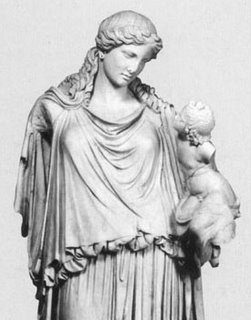Ante Diem III Nonas Januarias

Modern Date : January 3rd
Ante Diem III Nonas Januarias
Third Day to the Nones of January
This is one of the dies comitiales when committees of citizens could vote on political or criminal matters.
The Festival of Pax
This day was set aside to honor the Roman Goddess of Peace, Pax, whose temple stood open in Rome during times of peace, but was closed during war. It remained open for over 200 years continuously during the Pax Romana, an achievement unimaginable in modern times. It was locked closed by the Christians who ultimately tore it down. The world has not known a year without war since.
This was the birthday of Rome's greatest orator, Marcus Tullius Cicero. He was born in 106 BCE at Arpinum.
This month is sacred to Janus, the god of Beginnings. Janus is the porter of heaven and considered the guardian deity of gates and doors. He is often shown as two-headed since doors face both ways.
Mercury Exits Sagittarius
On this day Mercury is more than happy to exit Sagittarius, where he has been unhappily "in fall" since the end of October -- except for a brief retrograde stop in Scorpio Nov. 26 - Dec. 12 -- and has been playing what could be called the Dilbert aspect of doing one's best to survive the ineptitude and indifference of a boss who did not exactly invent people skills in an earlier life. In Mercury's annual journey, going into Capricorn is like a much-needed sabbatical in a library - not the best place for the ruler of Gemini to talk, but more than welcome after months of executive disrespect.
Genshisai
On the third and last day of the Japanese New Year, the Imperial Court holds an ancient ritual known as Genshisai. The rare dance and music art form, known as Gagaku, is also performed. Though the Japanese New Year lasts only three days, some rituals continue for several days longer.
St. Genevieve
In the Roman Catholic calendar, this is the feast of St. Genevieve, the first female saint to appear in the annual cycle of saints' days. She was born in 423 in Nanterre, and is said to have made a vow of perpetual chastity at the age of seven. (Where but in France, one wonders, could a child of 7 understand the implications of chastity?) Her charisma and dignity were so persuasive that she reportedly saved Paris twice, once from starvation during a siege by King Childeric of the Franks, and then from sack by Attila and the Huns. Early in the 12th century, the people of Paris prayed for relief from plague by bearing the saint's shrine in procession through the city, and the pestilence lifted at once. St. Genevieve has been regarded ever since as the special protector of the city of Paris.

0 Comments:
Post a Comment
<< Home